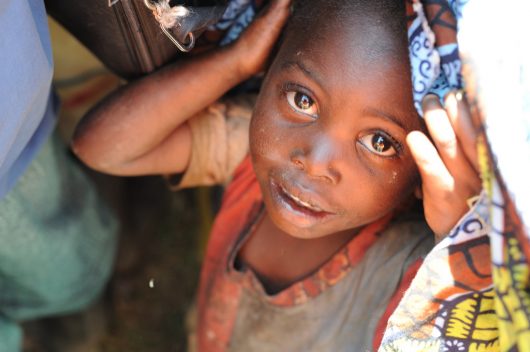15 Organizations Fighting Poverty in Developing Countries

Naturally, The Borgen Project is our favorite organization fighting global poverty, but there are lots of amazing groups changing the world. Thanks to multilateral partnerships between nonprofit organizations, intergovernmental organizations and governments around the world, extreme poverty is down 50 percent since 1990. Below is a list of influential organizations that are fighting poverty in developing countries by working to better the lives of the world’s poor. This list is by no means exhaustive; this is just a sample of the exemplary organizations doing work in problem areas such as global health, water, sanitation, food, housing and education.
Top Organization Fighting Poverty in Developing Countries
- Oxfam: Oxfam is currently fighting poverty in developing countries by taking on issues of inequality, discrimination and unequal access to resources. The organization provides assistance during humanitarian crises. Oxfam is also very involved in educating the world’s poor about human rights and civic engagement in order to change the root causes of poverty at the political level.
- United Nations Development Program (UNDP): Founded on the belief that all people should have a chance to live with dignity, opportunity and safety, the UNDP helps countries develop policies. These lead to sustainable development, democratic governance, peace building and climate and disaster resilience. The UNDP is a giant agency that delegates country-specific activities and programs through its Resident Coordinator System with offices in 130 countries. The organization’s highest goal is to implement the Sustainable Development Goals in all countries of operation.
- United Nations Children’s Fund (UNICEF): UNICEF fights for children’s rights and welfare by strengthening legislation and social services. Initiatives include early childhood development, nutrition, immunization, water, sanitation and hygiene, children with disabilities and education.
- United Nations Office for the Coordination of Humanitarian Affairs (UNOCHA): UNOCHA is responsible for coordinating humanitarian relief efforts during natural disasters and conflict, as well as raising awareness and encouraging involvement among U.N. member states.
- United Nations Department of Economic and Social Affairs (UN DESA): The UN DESA creates and analyzes data pertaining to the economic and social aspects of sustainable development, which U.N. member states draw from when creating U.N. resolutions as well as drafting local policy plans in each respective home country. The UN DESA’s in-depth policy analysis has helped to resolve many of the world’s most pressing socioeconomic issues.
- The Borgen Project: The Borgen Project is an influential U.S.-based nonprofit fighting poverty in developing countries through civic engagement and education. The organization believes that developed countries have a moral obligation to help the world’s poor. The organization advocates on Capitol Hill for poverty reduction legislation, increasing the international affairs budget and making poverty reduction a primary focus of U.S. foreign policy.
- U.S. Agency for International Development (USAID): USAID facilitates development abroad by allocating the U.S. international aid budget toward projects that increase agricultural productivity, lower child mortality rates and deadly diseases, provide humanitarian assistance during a natural disaster and prolonged conflict, as well as promote democracy, economic growth, environmental resiliency and women’s empowerment.
- Overseas Development Institute (ODI): ODI is an independent think tank that researches a myriad of topics such as climate, energy, poverty and inequality. The institute’s goal is to facilitate international development by providing policy advice, consultancy services and training programs to fight poverty.
- Concern Worldwide: Concern Worldwide is a non-governmental organization (NGO) that fights poverty in developing countries by providing lifesaving humanitarian aid primarily focused on alleviating world hunger, increasing world health, and responding to emergencies and natural disasters.
- The Hunger Project: Two-thirds of the world’s illiterate population is female. Sixty percent of HIV/AIDS cases today affect women. The Hunger Project recognizes that poverty is sexist, and believes that empowering women is essential to ending world hunger and poverty. The project fights for clean drinking water, nutrition, and sanitation, as well as economic growth.
- Bill and Melinda Gates Foundation (BMGF): The BMGF has been instrumental in saving the lives of 122 million children since 1990. This is largely made possible through its efforts to increase access to healthcare and vaccinations, which have all but eradicated polio and halved malaria and tuberculosis rates around the world.
- World Bank Group: The World Bank Group is a crucial piece of our international development; it funds development projects around the world through traditional loans, interest-free credits and grants. The World Bank Group produces some of the world’s leading research and publications concerning development policies and programs. The group also offers policy advice, analysis and technical assistance to developing countries throughout the project application process.
- The Earth Institute: The Earth Institute is part of New York University and is directed by Jeffrey Sachs. It is comprised of two dozen research facilities in the fields of Earth and climate science, public health, economics, law, business and public policy. All of the organization’s research is focused on the future sustainability of our planet. The institute uses its research to develop policies and solutions to the world’s problems, especially in the areas of sustainable development and the alleviation of poverty.
- The Red Cross: The Red Cross in an international NGO that provides urgent assistance to those affected by disaster through vaccination campaigns, disaster preparedness and by reconnecting families separated by conflict and natural disasters.
- Engineers Without Borders (EWB): Engineers Without Borders is fighting poverty in developing countries by providing real-world engineering solutions to tough problems all over the world. Whether that be through increasing access to clean drinking water in rural communities or building roads and dams, EWB is committed to community-driven development by working alongside community members.
There are thousands of other organizations that are working to do their part on local and international scales. These groups are all increasing standards of living and fighting poverty in developing countries.
– Josh Ward
Photo: Flickr
